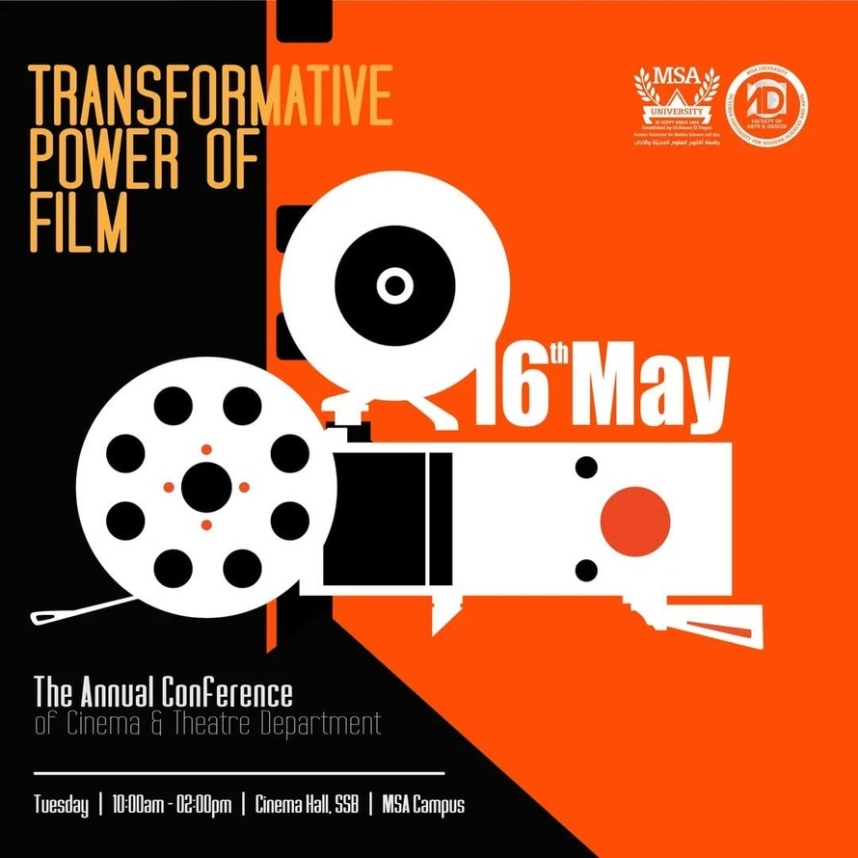Cinema has the power to ignite sparks of social change, bringing vital stories to light and empowering audiences to envision a brighter future
MSA University and the Cinema and Theatre Department at the Faculty of Arts and Design are about to host their huge annual conference for this year entitled ‘The Transformative Power of Film: How Cinema Can Inspire Social Change’ which will be an exciting opportunity for filmmakers and scholars to come together and explore the potential of film to inspire social change.
About the Conference
This conference promises to be a dynamic and thought-provoking experience that will showcase the immense impact that film can have on our society. In addition, it will be a platform for discussions and presentations on the transformative power of film in shaping attitudes, sparking conversations, and mobilizing communities toward positive action. Attendees will have the chance to hear from industry experts and thought leaders on topics such as the role of storytelling in activism, the ethical considerations of using film as a tool for social change, and practical strategies for reaching diverse audiences.
The Conference Aims and Objectives
The conference aims to facilitate a vibrant and engaging discussion around the potential of film to drive positive social change.
Through a series of keynote speeches, presentations, and panel discussions, the conference seeks to provide a platform for sharing insights, experiences, and best practices on how to use film as a tool for activism and advocacy.
Ultimately, the conference aims to inspire and equip participants with the knowledge and tools they need to harness the power of film and make a meaningful impact in their communities and beyond.
This conference will focus on how film can inspire change, promote social justice, raise awareness of important issues, and shape public opinion, as follows:
- The future of cinema as a platform for promoting social change and driving innovation
- The role of film in shaping public opinion and influencing social movements
- The ethical considerations of using film as a tool for social change, including issues of representation, appropriation, and authenticity
- The power of storytelling in inspiring empathy, understanding, and action
- The challenges and opportunities of using film to engage and mobilize diverse audiences, including those with different cultural backgrounds, ages, and levels of education
- The importance of collaboration and partnerships between filmmakers, activists, and community organizations to create effective and sustainable social change
- Film’s potential is to inspire and empower marginalized and underrepresented groups and challenge dominant narratives and power structures.

